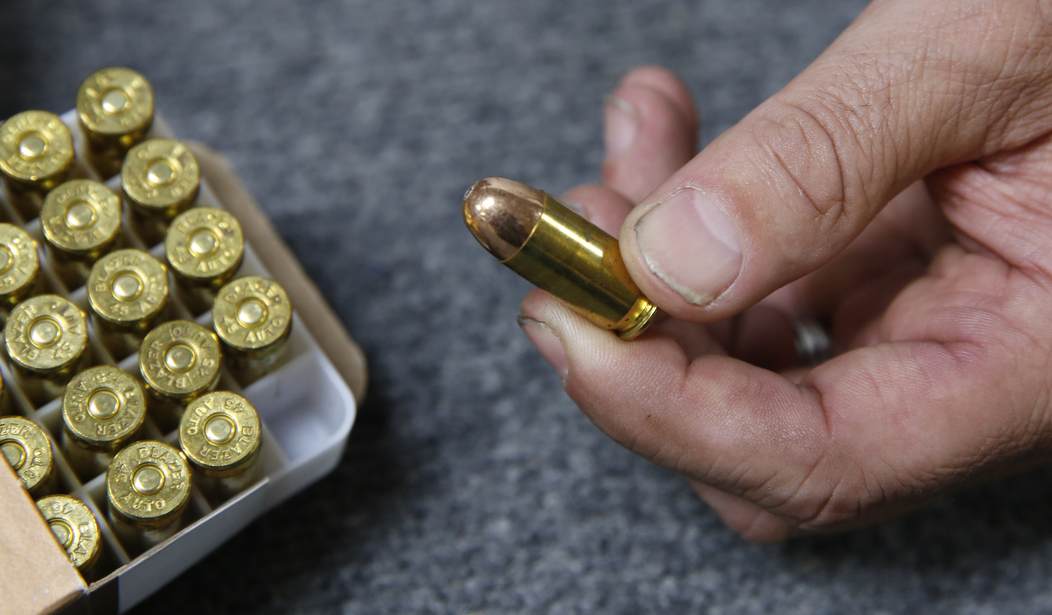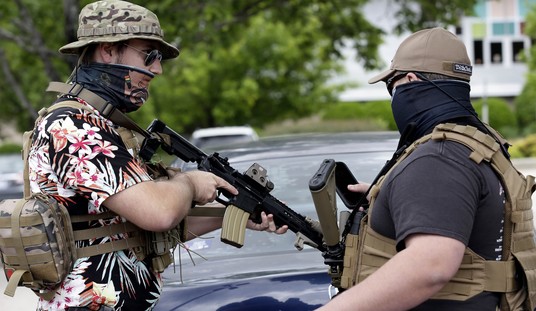Years ago, Chris Rock did a funny bit about how bullet control would reduce gun-related fatalities. What he said was, basically, if you made ammo cost $10,000 per round, the gangbangers would end drive-bys and make sure they don’t hit anyone but the guy they meant to hit.
Of course, Rock’s delivery made it hilarious–and, obviously, no one slapped him in the face for it, either.
But that’s comedy. It’s not a serious policy recommendation. Unfortunately, “bullet control” or ammo control is a new battleground in the Second Amendment debate.
Over at USA Today, the paper that notoriously treated chainsaw bayonets as a common thing is now jumping on the ammo control bandwagon.
After a mass shooting, public attention inevitably turns to a debate on the control of guns. But with shooters so often stocked up on ammunition in order to kill as many as possible, many are left to wonder: What about the bullets?
“Ammunition plays a large role in mass shootings, and ammunition has been historically less regulated than firearms themselves,” said New Jersey Attorney General Matthew Platkin, a Democrat who oversees a newly erected office designed to sue gun and ammunition manufacturers when their products cause harm.
As easy as ‘ordering a pizza’: Bullets are not hard to buy online or at a shop
It’s remarkably easy for anyone to obtain large quantities of ammunition, said Ari Freilich, state policy director at the Giffords Law Center to Prevent Gun Violence, led by former U.S. Rep. Gabrielle Giffords, who survived a 2011 mass shooting.
In most places in the country, people can go online and have hundreds or thousands of bullets delivered to their door, “as if ordering a pizza,” he said.
California’s ammunition regulations are some of the most comprehensive, Freilich said, noting the requirement that a background check be completed at the point of sale and that ammunition can’t be ordered online and shipped to your door; it can be picked up from an authorized dealer that must perform the background check.
“Restricting large-capacity magazines is one of the single most effective things we could do to reduce the shooter’s capacity to turn shootings into mass murders,” Freilich said.
Except ammo control and restricting higher-capacity magazines are two different things. Magazines can be swapped out quickly and efficiently with only a relatively small amount of practice, thus negating any advantage to such a ban.
But “bullet control” is a different animal entirely, and conflating the two makes no sense.
Yes, ammo can be purchased online without any issues. However, if gun control laws did what proponents claim, none of that should even matter. Ammunition is generally useless without a gun to fire it. If gun control kept guns out of criminals’ hands, buying cases of ammo online would just be a waste of money for such people.
As for mass shootings, though, well, there the claims become even more ridiculous.
We know that most mass shooters are able to purchase guns lawfully. They’ve generally never been convicted for a violent crime, nor adjudicated as being a danger by a court. So, they can buy guns.
If they can buy guns, then why wouldn’t they be able to buy ammunition, too? Even if you require a background check for ammunition, most would pass that check with ease.
So that would, in time, become some kind of rationing scheme; an attempt to impose a limit on how much ammunition one can buy. But then that introduces problems regarding training. Most training classes have a requirement for hundreds of rounds of ammunition, if not a thousand or more. If you limit ammo to just a box or two–which non-gun people would likely think to be reasonable–then such classes become an issue.
But mass shooters often plan their attacks out well ahead of time. They could simply buy what they can and just horde ammo until they have whatever amount they feel they need.
The idea of “bullet control” may sound good to a journalist writing for USA Today, but not to anyone who actually understands the issue. We recognize that it would just make things difficult for law-abiding citizens and do nothing to the criminals.







Join the conversation as a VIP Member